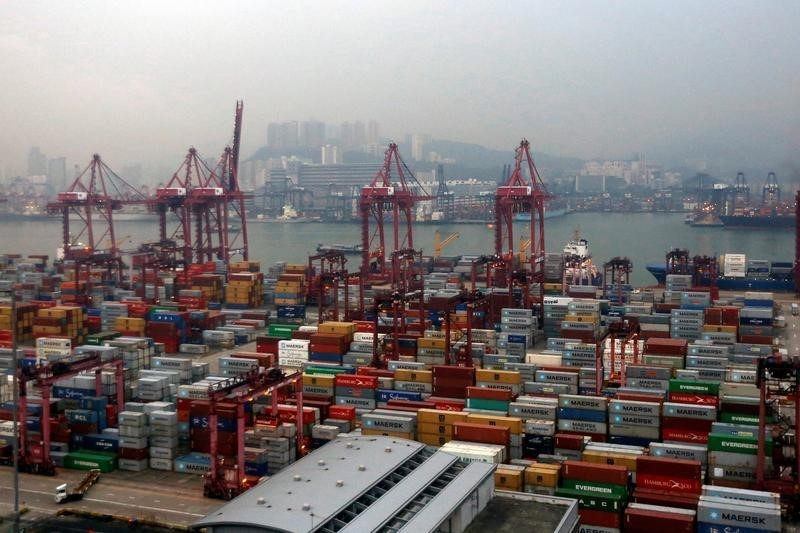(Bloomberg) -- Hong Kong is finally turning the corner, with the economy expected to expand for the first time since 2019 as it slowly recovers from the pandemic and social unrest before that.
First-quarter gross domestic product probably increased 3.6% from a year earlier, according to median estimate in a Bloomberg survey of economists, reversing a historic run of six straight quarters of declines. Quarter-on-quarter GDP growth, a better reflection of the economy’s momentum, probably accelerated to 0.4% from 0.2% in the fourth quarter.
Financial Secretary Paul Chan said in the Legislative Council last week he expects “quite impressive” growth in the quarter thanks to the strong performance in exports and the low base from a year ago. GDP plunged a record 9.1% in the first quarter of 2020 after the economy went into lockdown to curb the coronavirus outbreak. Chan repeated his forecast for full-year growth of 3.5% to 5.5% in 2021.
“We are confident that with the impressive improvement on the trade side and the gradual recovery on domestic consumption, the GDP for the first quarter of this year will give us a relatively strong positive growth,” Chan said in an April 28 media session.
Advance first-quarter economic growth figures are expected to be released at 4:30 p.m. Monday in Hong Kong.
Hong Kong has endured its most economically challenging two-year stretch in its history, posting unprecedented back-to-back annual contractions in 2019 and 2020 as the city grappled with waves of political unrest, fallout from the deteriorating U.S.-China relationship, and the Covid-19 pandemic.
Key economic indicators have turned more positive recently. Exports surged above HK$400 billion ($51.5 billion) for the first time ever in March while unemployment dropped the most since 2003 in the month, easing back from a 17-year high. Retail sales by value jumped 30% in February, the first increase in that measure since January 2019.
“Hong Kong is on track to pull out of its recession, with exports being the growth driver, while domestic demand recovery could be sluggish given the labor market slack,” said Tommy Wu, lead economist with Oxford Economics in Hong Kong. “I expect stronger quarter-on-quarter rebound from the second quarter onwards and the economy will be back to the pre-pandemic level in the second half of this year.”
The pandemic remains a difficult challenge for the economy though, making it “too early to talk about a full recovery of the Hong Kong economy from Covid,” said Iris Pang, chief economist for Greater China at ING Bank NV.
“I don’t think one data point can be treated as a trend,” she said. “This is especially true for the unemployment rate.”
The city also continues to grapple with a persistently low vaccination rate from a distrustful populace, potentially hindering Hong Kong’s efforts to fully rebound from the pandemic.
“To safely reopen the city’s borders, Hong Kong needs to close the immunity gap with the rest of the world, particularly the developed countries as well as China,” Wu said.
©2021 Bloomberg L.P.
